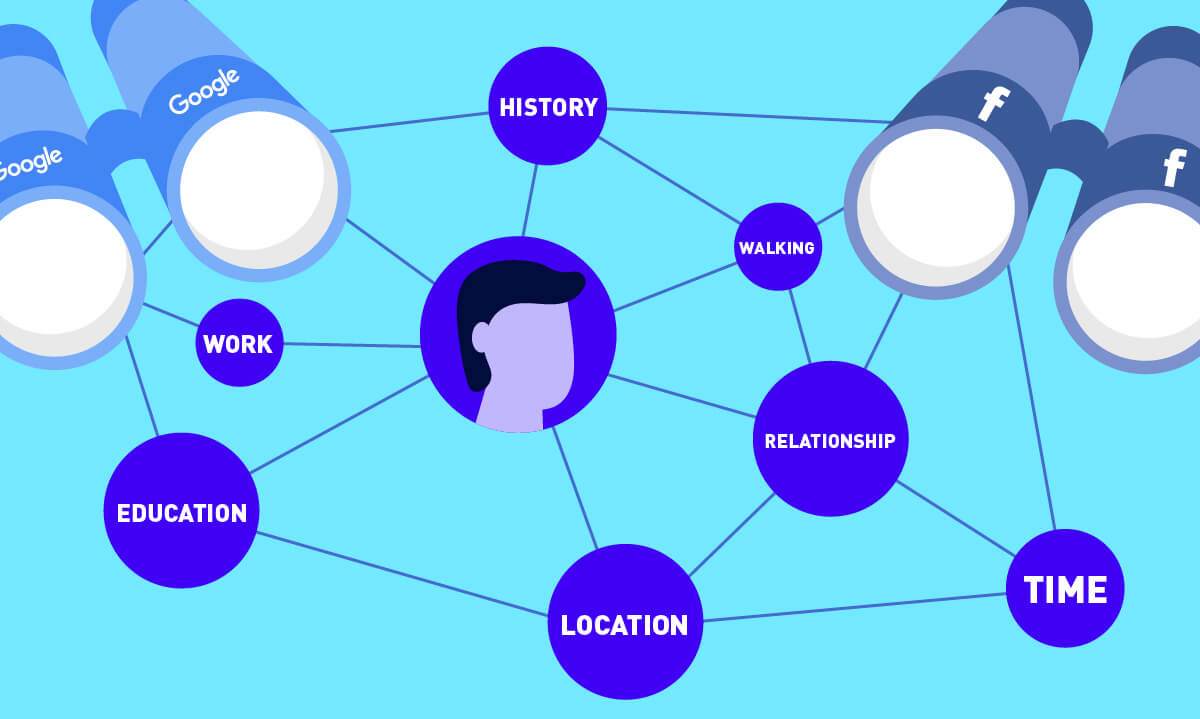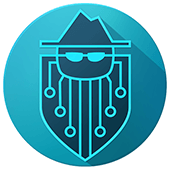The Top Creepiest Websites That Know Everything About You
👂 This post is available as a voice article on the Tenta podcast. Tune in for our round up of Tenta updates, technology, and privacy issues around the world.
The internet was built decades ago with the dream of creating a digital utopia that fostered free thought and interaction. In the good old days, we believed in the best of humanity, freely creating, expressing and sharing information, working together to make the world a better connected place.
Today, it’s not hard to see we’ve gotten way off course. The internet we use now was built to share, not protect. As a result, our current internet is a series of patches against increasing breaches, exploits, and cyberattacks. The new, decentralized internet that’s currently being built promises to solve these issues of trust and privacy, but it’s mostly inaccessible to the average internet user. So, until then, what can we do protect ourselves today?
There's a popular misconception that what we do on the internet is private. We're usually accessing it alone, at home or at work, through our screens. What we search for; the sites we visit; the videos we watch - it can all seem like part of our personal, private lives.
But it's not private at all. In fact, existing online is one of the least private things we do. While our online activities may be private from our friends and family and coworkers, they're not private from the browsers and websites and apps we interact with. In fact, some of your favorite sites are tracking you all of the time and can compile extremely personal information about who you are, what you like, where you've been, and what you're doing.
Let's take a look at some common sites that know more about you than you might realize.
Google (Alphabet)
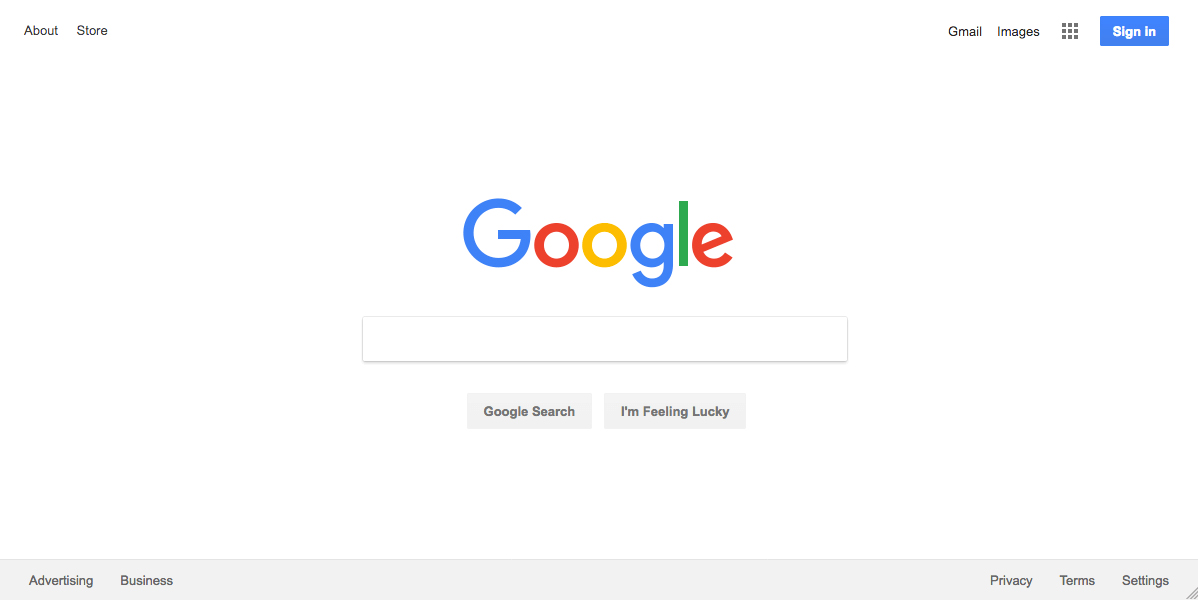
Google - or really their parent company, Alphabet - is probably the number one offender when it comes to collecting, selling, and using your data. People with an Android can expect that Google knows everything they do, everywhere they go, everything they buy - maybe even who they're with.
But even people who don't use Android phones may use the Chrome browser or one of the company's popular apps, like Maps. The browser alone logs everywhere you on the internet but the apps and phones take it a step further, recording your exact latitude and longitude, as well as the type of movement you were doing, like biking or walking or riding in a car.
If you use YouTube, Gmail, Calendar, or any of the other sites on this long list of sites Google owns, they also know everything you do there.
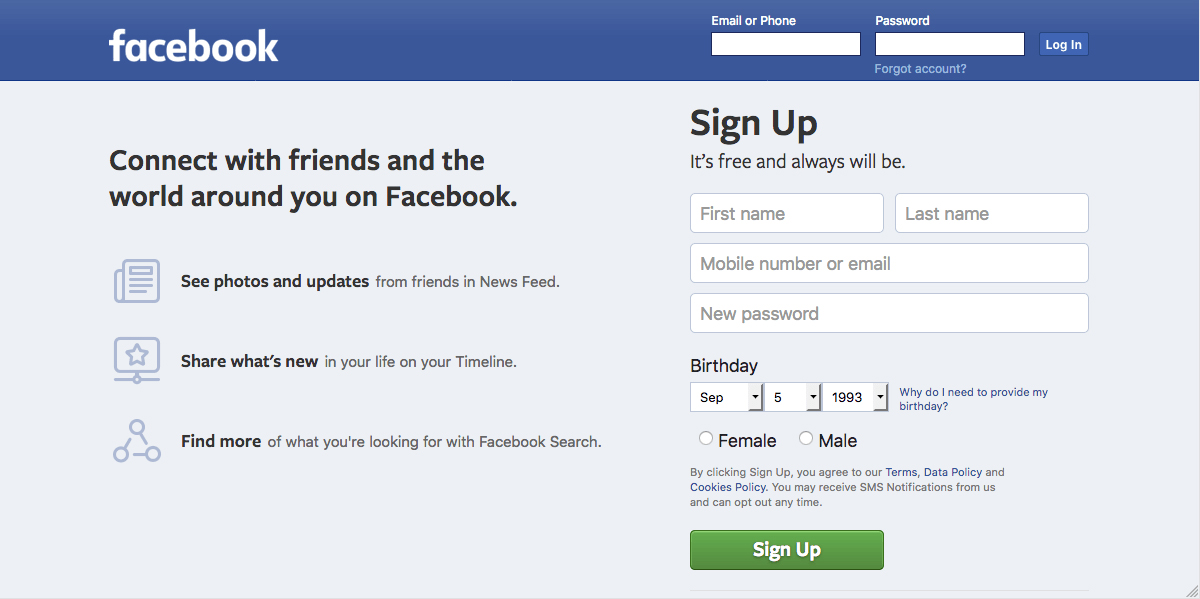
If Google is the number one offender, then Facebook is the sneaky con man. Facebook has perfected the art of getting us to give them information that they can then use to sell ads back to us. This shouldn't come as any surprise at this point, but Facebook knows what you look like, who you're related to, who your close friend groups are, all of your email addresses, the email addresses and phone numbers of everyone in your contact list, the other sites you visit online, every social event you've been invited to or attended via Facebook, every time you logged on (and where and with what device), your exact location data, people who were in the same places as you, your purchases.
The list goes on and on and on. If you use Facebook - and any of their other sites, like Instagram or WhatsApp - you should assume that they know basically everything about you.
And even people who don't have Facebook accounts should know that Facebook still has information on them, gleaned from their browsing history and from their friends. And unlike some other ways Facebook tracks users, there's no way to opt out of this data collection.
Related - How To Wean Yourself Off Facebook
Target
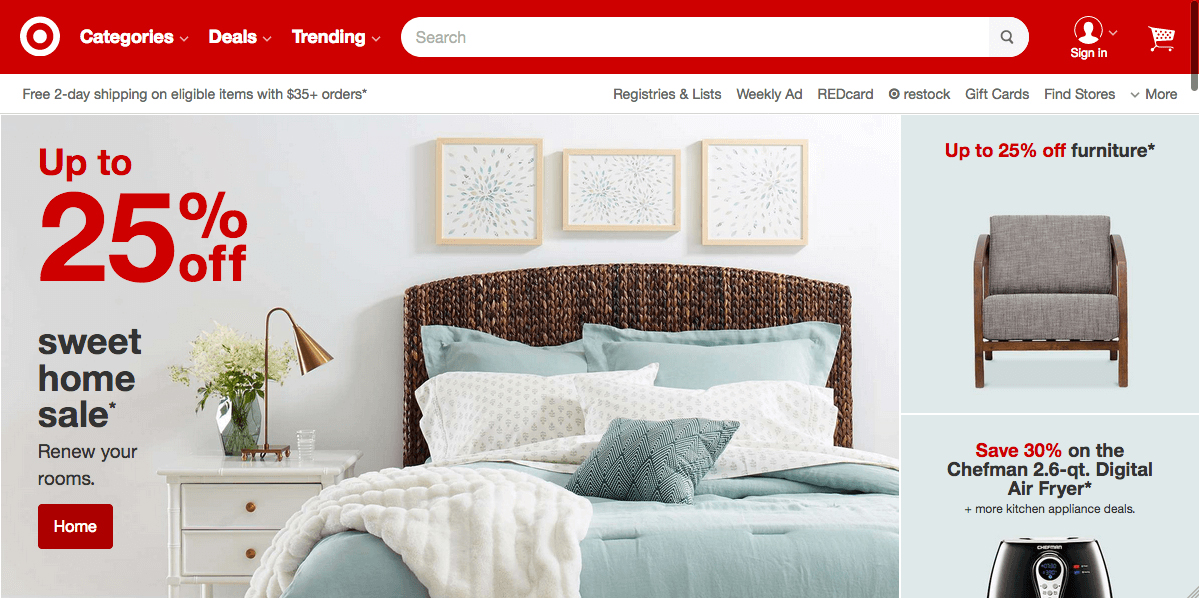
Target is just one example of how big companies buy and sell your data in order to make intrusive and, yes, creepy targeted ads. In 2012, details about how Target was using information about purchases and site visits from customer visits and that it had purchased from third-party data collection agencies came out. They used the collected data to create "pregnancy prediction scores," specifically with the goal of targeting customers as early as possible in their pregnancy.
In some cases, the people being targeted hadn't even shared the news with their loved ones yet. And in one extreme case, a father found out that his teenage daughter was pregnant, which was information she was trying to keep from him. It's a glaring example of how our purchase history and online activity can be used in ways that most customers would certainly find creepy at best, invasive at worst.
23andMe
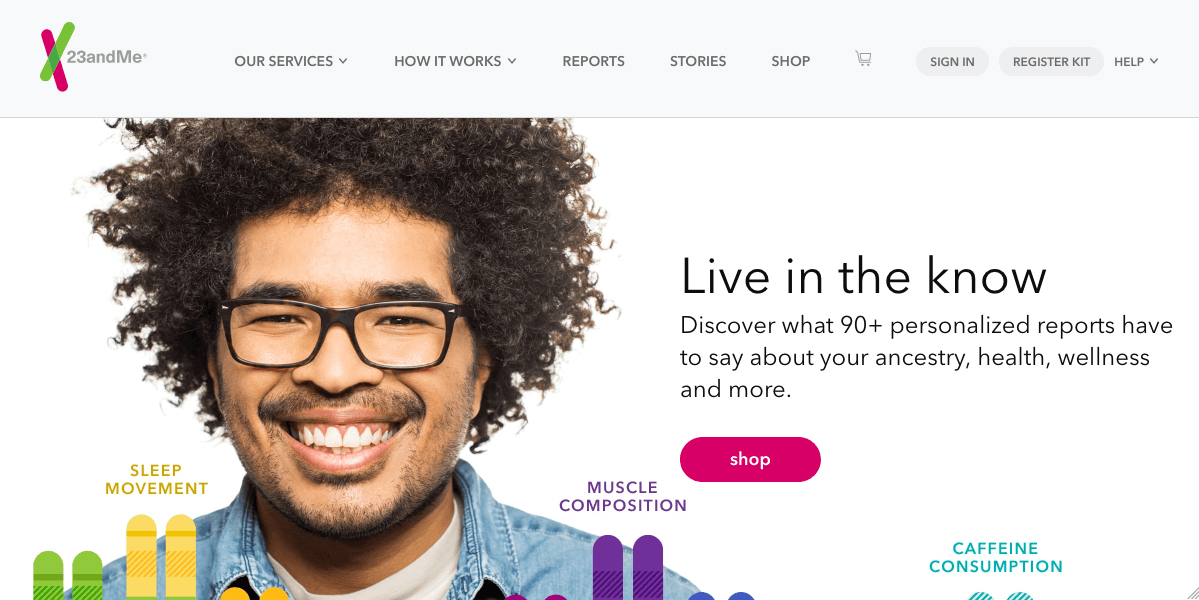
The obvious information that 23andMe - or any other DNA website - has is data about you, the customer, because you submitted when you sent in your DNA. But the less obvious thing is what they do with that data. These sites draw people in with the promise of telling them about their heritage and any potential hereditary illnesses, but they also want to use that data to become "the Google of personalized healthcare."
While the site has promised not to sell that data, that's a promise we've heard before. Additionally, any and all data is potentially open to data leaks and breaches, which means that some very personal information could get out into the world. Finally, genetic testing sites can sometimes reveal connections - and scandals - that families prefer to keep hidden. It's all something to think about before spitting into that vial.
FamilyTreeNow
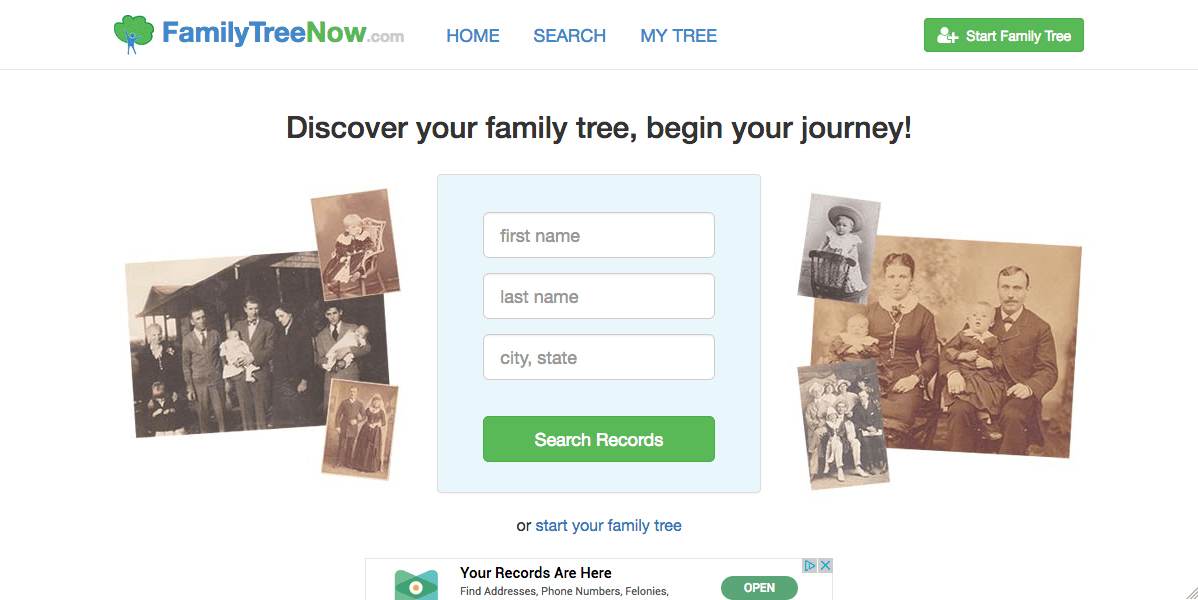
There are a huge number of sites that rely on public data to not only compile information about individuals but also map their family and friend connections. One of those sites is FamilyTreeNow, which can bring back your name, age, current and past home addresses, and all of that information about your family members - and even some possible "associates," like someone you dated briefly - as well. Again, this is all just from public data; not even from a site that's doing their own intruding.
Basically every website
In addition to these specific sites, most websites know more about than you realize. They can tell not only the browser and version that you're using, but also your operating system and the version you're working with. They can also tell what brand and model device you're using, your screen resolution, system fonts, the size of your browser window, and even the color depth of your screen.
Finally, they can tell figure out where you are by using IP address, which is the unique address your computer uses to communicate with the internet, and your MAC address, which is a unique set of numbers assigned to your computer hardware. With that data, most websites can determine your time zone, language, and your exact geo-location.
Related - Find out what data your browser is leaking about you with Tenta's free Browser Privacy Test
Freaked out? Wondering what you can do?
While some of these sites offer options for opting out of data collection, not all do. And, unfortunately, part of the reality of being on the internet in this day and age is that you're going to be tracked and sold to some extent.
However, people who really don't want their information gathered do have options.
- Switch to a private browser. Tenta Browser comes with built-in VPN, full data encryption, HTTPS Everywhere, encrypted media vault, PIN protection, DNS over TLS, ad blocker, anti tracker, and more. We can't control the information you give away voluntarily, but we can protect you against creepy, intrusive trackers and snoops. Download Tenta Browser
- Start using a private search engine. Privacy-first search engines promise to not track you or store your search history. Tenta Browser offers DuckDuckGo and Startpage as private search engine options.
- Use a VPN. When you log into a VPN (virtual private network), your computer exchanges a series of trusted keys with a server, creating a secure ecnrypted connection. Once that connection is made, your computer is protected from eavesdroppers, government agencies, search engines, and anyone else trying to track your online activity. We offer free built-in VPN for browsing, with a paid subsription for device wide protection.
Make the switch to the browser that doesn't sell you out. Check out Tenta Browser and take back some of your online privacy.
Share this postInstall Tenta Browser Free!
Start protecting your online privacy today with Tenta Browser.

